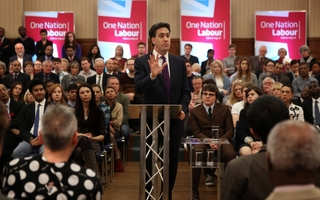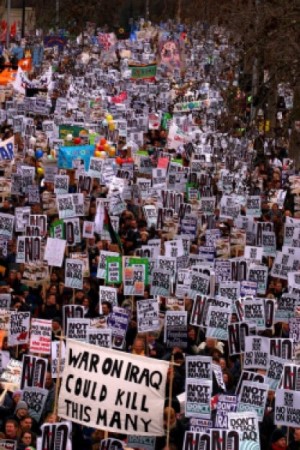
Needless to say, the City Council move has proven extremely controversial. It was the main reason why Labour lost a by-election to the City Independent group last July, and has thrown much grist into the satanic mill of The Sentinel's letters' page in the half-year since. The basis of opposition rests, in the main, on two key points. The first is a question of money. Moving the council to a new HQ will cost between £40-60m (funded by borrowing and capital receipts) for what, its opponents believe, amounts to zero demonstrable benefit. The second, particularly for businesses and residents in and around Stoke Town, is the fear the move will kill their town centre. Without the daily presence of hundreds of council workers, campaigners believe the town will die. Of course, given the quite dysfunctional nature of politics in Stoke, this move epitomises everything council-bashers and the anti-politics brigade would have you believe. It's a sign of an elitist council, an out-of-touch council, an incompetent council; of a plot to pour public money into private coffers, or to further the objectives of "cultural Marxism". I wouldn't be at all surprised if UKIP - who were the only political party to have a banner on Saturday's march - think it's all Brussel's fault, somehow.
Some people are going to believe what they want to believe. But in truth the council move is all about economic development.
I've written before about Stoke's decline. The challenge therefore is not to moan about good times gone, but to get the wheels of industry turning again. And as it happens, there are a number of ongoing projects and schemes, some City Council-led, some not, that will transform Stoke-on-Trent in the decades ahead.
Education provision in the city right from school to university is having tens of millions invested into it, ensuring that not only do our schools improve attainment but that young people want to come to the city because of its educational promise. Already £261m has been spent on rebuilding or refurbishing the city's schools. Stoke-on-Trent College and Stoke-on-Trent Sixth Form College have built new campuses and new learning facilities. There is the exceedingly impressive £17m Centre of Science at Staffordshire University. It is a state-of-the-art multi-disciplinary facility, which enables the university to compete with the very best for the provision of courses across biosciences, environmental science, chemistry, and psychology. Don't take my word for it - see for yourself. And while we're on the university, it looks like it will be investing an additional £90m into the 'University Quarter' to prepare the ground for the shifting of hundreds of jobs, thousands of students, and attendant spin-off companies and start-ups from its Stafford and Lichfield campuses to the city, a move, it would appear, that is opposed by the Save Our Stoke campaign group.
It's never wise to keep all your eggs in one basket, and there is more going on. The £11m Centre of Refurbishment Excellence (CoRE) in Longton is a new hub for refurbishment and construction training across the West Midlands and North West. £18m is being invested in massively improving the linkages of the Etruria Valley business park area - presently the home of Vodafone and Bet 365 - in a bid to attract further businesses to the site.
Most exciting is the quiet revolution taking place over green energy. The city has a sustainable city agreement with E.On over the provision of solar panels on council property. 700 have been installed in the first wave, benefiting hundreds of low income residents. But even more profound is the work being done to develop energy grids that can capture waste heat from the city's factories, AND make use of the hot water coursing through our abandoned mines. In short, what is proposed is nothing less than an energy self-sufficient city capable of generating all the power it needs off the national grid. With energy security a policy headache for the politicians, and rising bills for businesses and consumers, Stoke-on-Trent will be able to offer cheap and stable energy prices other locations cannot. And on top of this is the £1bn City Deal, a joint project city and county bid led by the Local Enterprise Partnership, looking very close to realisation.
There's also a quiet renaissance going on in the housing sector. In two innovative projects, the City Council is offering homes for £1 and a custom home-build scheme. For the first time in a long time, bulldozers are moving in not to demolish houses but build new ones.
The only thing missing from this package of economic rejuvenation is a central business district, and it is the role the City Council are playing in this that is the cause of much controversy. The Council's argument is that as part of a new economic mix for Stoke-on-Trent, the centre requires high grade office space to attract more businesses to the city. By funding the first phase through borrowing from the government at preferential rates, and assisted by the sale of other capital assets across the city, the council believes it will kick start a development that will create up to 4,500 additional jobs on the edge of the city centre. While moving the vast bulk of the council's administration from sites about the city will not create jobs in and of itself, the new build will generate significant savings from consolidation and energy efficiency over 20 years - savings that will cover the loan interest and maintenance. At the end of which, and contrary to what some might think, the new City Council building will be a wholly-owned capital asset held by the local authority.
Understandably, against the backdrop of austerity (the council will be cutting its spend by a further £20m this year) a move like this is a bitter pill to swallow. But it is not a vanity project - there will be no Pervez House, van de Laarschot Building, or Andy Platt Lounge. It's about providing value for money for the Council Tax payer in the long run, it's about raising more money from business rates by attracting more businesses to Stoke-on-Trent (with the DCLG's continued squeeze on national financial settlements, councils have to find other sources of sustainable income), it's about diversifying the city's economy away from public sector dependency, and it will feed in to the retail regeneration of the city centre.
City Sentral is the awful name of the planned £350m shopping centre on the site of the old bus station. Now, I've been extremely uncharitable about retail-led regeneration in the past, and if that was all that was going on, I still would be. But the retail plus the business district plus the other projects outlined above interlock into a coherent and well-rounded scheme. There are constant aspersions cast in the press as to whether it will see the light of day. In fact, I'm pretty sure some of the more misanthropic regulars on The Sentinel's letters' page would like to see it cave simply so they can crow about it. But the fact is that with approximately 2,000 council workers on its doorstep from 2015, the additional to-ing and fro-ing of local authority business, and with the promise of more businesses to relocate; all of a sudden the market conditions for firms thinking about taking on a City Sentral lease will prove very attractive.
In sum, the City Council move is about realising value for public money, boosting economic performance and jobs by concentrating consumer purchasing power in the city centre, and providing the sorts of office space business requires. Okay, while this is all very fine and dandy, what about Stoke Town? Presently over a thousand workers sit in the present Civic Centre, the cold hole that is Swift House, and Swann House. The primary concern of many of the participants in Save Our Stoke is that the disappearance of council workers will kill the town centre and a number of the businesses that inhabit it. For some living around the town centre it feeds into the perception that Stoke is being run down for Hanley's advantage - especially as nearly all the potteries based around Stoke that leant the town some lunchtime vibrancy are long gone. Then of course is the small matter of what happens to the council property to be vacated? There are no guarantees the Civic, and Swift and Swann Houses will be snapped up by some eagle-eyed developer, and even if they are what happens then?
While it is easy to understand these concerns, because of the city-wide regeneration strategy Stoke Town will be in a better position in the long run. It has been reported that the City Council's assets have received 29 expressions of interest - in other words, one can be reasonably confident that these will not be mothballed for years on end and it is very likely council workers will be replaced by employees from some other organisation. But failing that, even in the worst case scenario of these standing empty, as we have already seen there will be hundreds of new permanent residents on the old Victoria Ground site. An additional block of housing is due to begin construction in the Butler Street area too. And as the University consolidates itself in Shelton, there will be the overspill of thousands of extra students and associated businesses. As the council moves out, they and their spending power will be replaced. In other words the small renaissance the town has experienced in recent years is unlikely to even notice the change.
Ultimately, these are the reasons why, for the first time in nearly 18 years of living in Stoke-on-Trent I didn't support a demonstration for an ostensibly supportable cause. I certainly think our Labour Party and the City Council have to do a better job explaining the council move and its part in an overall regeneration strategy. I think the whole process has to be as open to public scrutiny as projects of this kind can be. But that does not negate the move and the plan of which it is part.
The pledge to create more jobs was the centrepiece of Labour's 2011 local election campaign. And undertaking the work necessary to realise that promise is what Labour is now doing.








